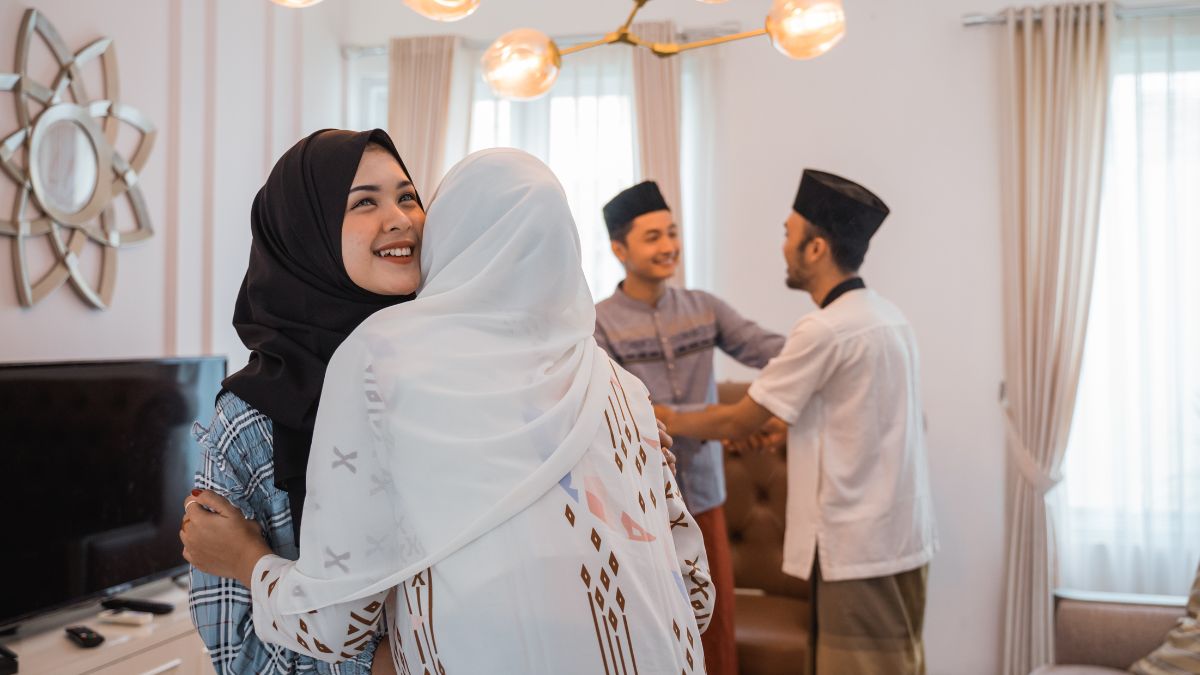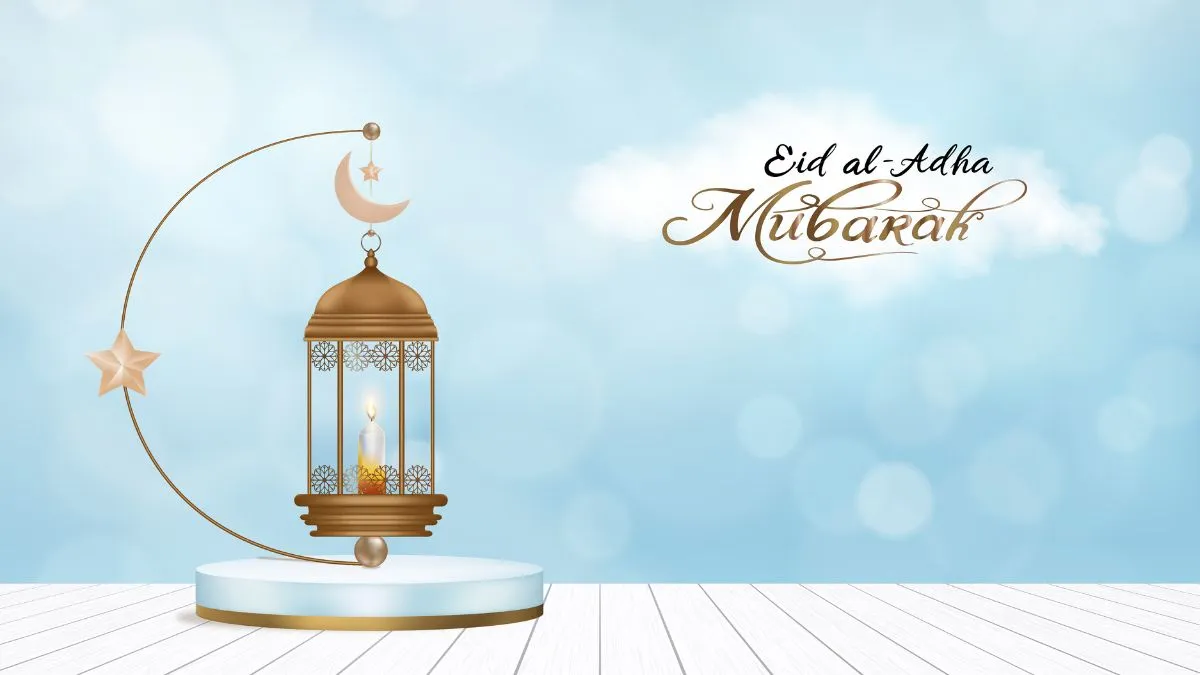- By Bornika Das
- Thu, 05 Jun 2025 10:46 AM (IST)
- Source:JND
Eid Al-Adha 2025: Also known as Bakrid or the Festival of Sacrifice, Eid al-Adha is considered one of the holiest festivals of Islam. This festival is filled with spiritual anticipation. Eid ul-Adha is just around the corner and Muslims around the world are already gearing up for the festival to celebrate with great pomp and enthusiasm. On this day, Muslims offer their prayers and remember the Quran's teachings, perform charity and get together with friends and family. The day honours the devotion of Prophet Ibrahim (Abraham), who was willing to sacrifice his son in obedience to Allah. As per Islamic belief, just before the act, Allah provided a ram as a substitute, rewarding Ibrahim’s unwavering faith. This act of devotion is remembered every year through the tradition of ritual sacrifices, which are generally animal sacrifices. Usually goat (bakri in Hindi) or a ram is sacrificed and thus, it is called Bakrid or Bakri Eid.
Here’s everything you need to know about the exact date of Bakrid in India, its history, significance, rituals and celebration.
When Is Bakrid In India And Saudi Arabia?
The exact date of Bakrid or Eid al-Adha celebration varies each year as it depends on the Islamic calendar. The festival is celebrated on the 10th day of Dhul Hijjah, which is the last month of the Islamic calendar and also depends on the sighting of the crescent moon. This year, the crescent moon that marked the beginning of Dhul Hijjah was sighted on May 27 in Saudi Arabia and thus Eid al-Adha will be celebrated there on June 6. However, Bakrid in India will be celebrated a day later, that is, June 7, 2025, as the sighting typically occurs a day after. Reportedly, this year, Arafat Day (Yawm al-Arafah) will be observed on Friday, June 6, which is one day before Eid-ul-Adha.
ALSO READ: Bakrid 2025 Fashion Trends: Kaftans, Anarkali And More; Trendy Outfit Ideas To Bookmark
Eid Al-Adha History
Eid al-Adha narrates the story of timeless faith, obedience and divine compassion. According to Islamic tradition, Prophet Ibrahim (Abraham) saw a dream in which Allah commanded him to sacrifice what is most beloved to him, that is, his son Isma'il (Ishmael), as a test of his devotion and submission. Although it was unimaginable for him, Ibrahim prepared to fulfil Allah's wish. However, when he was about to make the sacrifice, Allah interrupted and replaced Ismail with a ram, which is considered a powerful sign of mercy and reward for Ibrahim’s true faith and devotion to him.
This event is narrated in the Quran in Surah As-Saffat (verses 99–113) and reminds the Muslims of the importance of trust, sacrifices and surrender to the divine. Symbolising this, every year Muslims celebrate the festival by performing animal sacrifices like a goat or a ram, thus calling it Bakrid.

Eid Al-Adha Celebrates Devotion And Gratitude (Image Credits: Canva)
Eid Al-Adha Significance
This festival is a tribute to the obedience and faith of Prophet Ibrahim (Abraham), who was willing to sacrifice his son in obedience to God. It reminds the Muslims worldwide to take strength to surrender to the divine will and trust. On this day, sacrificing an animal (Qurbani) symbolises the act of letting go of personal attachments and sharing blessings. It resonates with the value of selflessness, compassion and caring for those in need. Muslims, on Eid al-Adha share one-third of the sacrificed meat traditionally to the poor, shedding light on the importance of charity and responsibility. It is the time that ensures no one goes hungry or feels left out of the celebration. This day is also a celebration of brotherhood and unity where families and friends get together and celebrate the day with great enthusiasm and fervour. Prayers, charity and sacrifice performed during Bakrid serve as a form of spiritual renewal.
ALSO READ: Sharara vs Gharara: Which Is The Perfect Eid Al-Adha 2025 Outfit For You?
Eid Al-Adha Rituals And Celebrations
Eid Prayer (Salat al-Eid): The day of Bakrid begins with a special congregational prayer, which is usually held on open grounds or large mosques. It includes two units (rakats) followed by a sermon (khutbah). The prayers bring the Muslim community together for celebration.
Animal Sacrifice (Qurbani): One of the most important rituals of Eid ul-Adha is animal sacrifice, which usually includes goat, sheep, cow or camel. This act honours the devotion of Prophet Ibrahim and symbolises obedience to God. The meat is distributed in three parts - one-third for the family, one-third for relatives and friends and one-third to the poor.
Distribution And Charity: This day focuses on sharing blessings, especially with those in need. Along with the distribution of meat, Muslims give charity (sadaqah), gifts and food, ensuring that everyone can join the celebration.
